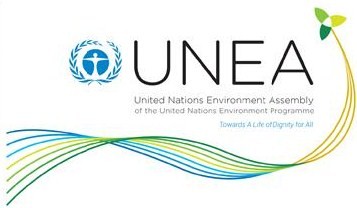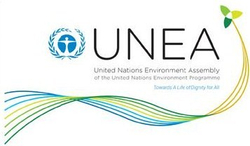Seize opportunities of a new Urban World to ensure a life of dignity for all, says ICLEI

The long-awaited UN Environment Assembly should seize opportunities of a new Urban World to safeguard the survival of planet Earth and all generations of humankind.
Welcoming the first United Nations Environment Assembly as a new player in the institutional framework for sustainable development, ICLEI – Local Governments for Sustainability encourages government delegations and Ministers of Environment to reinvigorate bold policies and actions that will ensure responses to ecological, social and economic crisis respect planetary boundaries and engage with local and subnational governments as “governmental stakeholders” serving in urban areas that constitute more than half of world’s population.
One of the most important outcomes of the Rio+20 Summit held in 2012 was to recognize the United Nations Environment Programme (UNEP) as the global authority on environmental issues.
This decision provided an opportunity for UNEP to leverage effectiveness of its policies and programmes to a universal level by engaging all of the 193 Member States of the United Nations in its decision making and implementation, through the newly established United Nations Environment Assembly that is set to convene biennially under the authority of Ministers of Environment in Nairobi, Kenya.
Following a 2 –years of preparation work, UNEP is convening its first United Nations Environment Assembly on 23-27 June 2014.
“Since its establishment in 1990, ICLEI has been proud to collaborate with UNEP. On the way towards Rio+20, we supported strengthening of UNEP and we are happy to contribute in the preparation of United Nations Environment Assembly since its kick-off at the first universal UNEP Governing Council in 2013.” underlines Gino Van Begin Secretary General, UNEA as a new important as a new player in the institutional framework for sustainable development.
Achieving a universal mandate is definitely a significant step forward for an organization like UNEP which, in the past 40 years was recognized as being the first UN institution with its headquarters seated in the Global South, led by only a representative group of countries with its Ministerial sessions taking place only since 2000, working through a comparably limited staff and budget capacity, and challenging the globally well-established mechanisms on finance, industry, trade, energy, agriculture, peace, security, health and governance with an environmental perspective.
Meanwhile, the latest scientific evidence, including the Global Environmental Outlook-5, as well as 5th Assessment Report of Intergovernmental Panel on Climate Change and The Economics and Ecosystems of Biodiversity, prove that in far too many areas, environmental change is accelerating and pushing the planet towards tipping points.
Thus, this new mission and mandate raise additional expectations from UNEP and UNEA, together with its delegations and Ministers of Environment, as the custodians of the global environment, to reinvigorate bold policies and actions that will ensure that responses to ecological, social and economic crisis respect planetary boundaries and ensure survival of current and future generations of the humankind. This is particularly essential when the global community is just about to finalise the design of the post2015 development agenda, mainly through adoption of a universal set of Sustainable Development Goals that is expected to complement Millenium Development Goals, operationalizing the High Level Political Forum, a new global climate regime that will come into effect by 2020 and the second phase of the Hyogo Framework for Disaster Risk Reduction.
One of the unique and emerging concepts in the processes related to the post 2015 development agenda is the concrete examples to engage local and subnational governments as “governmental stakeholders” in the design and the implementation of the global efforts, in response to the fact that the global sustainability in the 21st Century will be defined with the success and failure of sustainability practices in cities and urban areas which will be home to more than half of the world´s population.
As the closest administration to citizens, local and subnational governments are a key partner for driving global efforts sustainability and reaching any goals, pursuant to their role mode to citizens through, direct demonstration of good practices in municipal operations, enabling grants and managing public budgets, performing their legislative authorities on taxation and incentives, and exerting their political power through commitments and leadership.
“UNEA and UNEP should benefit from recent achievements in the global processes and consider additional modalities in its new modes of work to seize the potential and ambition of local and subnational governments in order to address and solve the growing environmental challenges of the new Urban World. If cities and urban areas are not taken into account at all levels of governance and policy making including at the global level, sustainable development for this planet cannot be achieved, nor can there be sustainability for us, the people and the planet Earth.”
The below list provides highlights of recent progress in active engagement of local and subnational governments in the global efforts, since the first universal UNEP Governing Council convened in 2013:
- More than half of the national governments participating at the Open Ended Working Group on Sustainable Development Goals have expressed explicit support to a stand-alone goal on sustainable cities and human settlements, which is backed up by all Major Groups and supported with a global coalition of local and regional governments and as well as through their partnerships,
- The Economical and Social Council dedicated its first Integrated Segment on sustainable urbanization which provided an opportunity to address the challenges with the United Nations system at the highest level,
- World Urban Forum–7, convened by more than 22,000 in Medellin, Colombia is recognized as the largest UN meeting without a political negotiation mandate, which also resulted in a new report the role of urbanization in transition to a green economy, a new partnership between UNEP and UN-Habitat, a new global collaboration on urban resilience, amongst many other outcomes,
- The 5th Assessment Report of the Intergovernmental Panel on Climate Change for the first time dedicated special chapters for urban areas and concluded that many of the emerging global climate risks are concentrated in urban areas which at the same time capture a wealth of opportunities for mitigation global GHG emissions substantially.
- Climate negotiators have clearly recognized the role of local and subnational governments in raising global level of climate mitigation and adaptation now, up-to and beyond 2020, while local and subnational governments that serve 12% of world´s urban population demonstrated their progress on trustworthiness through voluntary global reporting of their climate action information and more and more cities are committing to 100% renewable energy of carbon neutrality targets.
- A number of action oriented multilevel, multi-stakeholder partnerships have been launched that also specific focus on local climate action, including Climate and Clean Air Coalition with workstreams on Municipal Solid Waste and Urban Health and LEDS Global Partnership Subnational Intergration Workgroup.
- Appointment of Michael Bloomberg by Ban Ki-moon as the UN Special Envoy for Cities and Climate Change introduced a new momentum. A broad coalition of networks of local and subnational governments, are preparing to announce with him an ambitious commitment on 23 September at UN Climate Summit in New York.
- The implementation of the 10-Year Action Plan on Subnational Governments, Cities and Other Local Authorities in Biodiversity in support of Aichi Targets is rapidly advancing as more and more national governments are prepared to report their progress on their achievements of multilevel governance.
- A recent survey conducted by ICLEI and UNEP unveiled that a there is a huge recognition among local governments to understand resource efficiency that “enhances the quality of life in urban areas by minimizing resource extraction, energy consumption and waste generation while simultaneously safeguarding ecosystem services”.
- The Global Sustainable Public Procurement Programme, the first 10-Year Framework Programme on Sustainable Consumption and Production was launched where ICLEI, UNEP and KEITI acts as the global co-leaders.
- The first Ecomobility World Festival demonstrated that through innovative policies and technologies, it is possible to transform urban areas into low-carbon zones that combine public transport with non-motorized vehicles and practices.
- There is a growing tendency globally to develop city-region food systems which are an increasingly important driver for many other urban policies such as health and nutrition, education, economic development, transport, environment, waste and water management, disaster risk reduction, adaptation to climate change and social welfare and demonstrating that urban-rural is a continuum and not a dichotomy.
For further Information visit:
